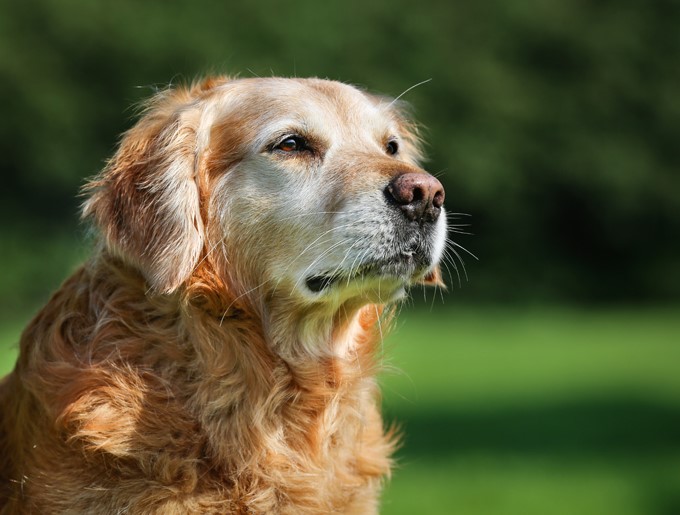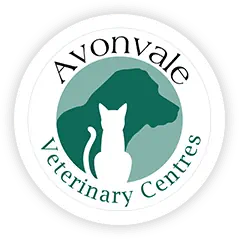As our pets grow older, their bodies start to undergo subtle changes in connection with the ageing process.
Just like us, they gradually slow down and become less active. They may develop physical problems to do with age such as arthritis, liver and kidney problems, heart conditions, diabetes and behavioural changes. A visit to the vets every 6 months for your pet is the same as us going to the doctors every 2-3 years, meaning a lot can change.
Old age need not necessarily mean ill health, however, and there is much that we can do to keep the older pet in good condition and able to continue to enjoy life to the full. This leaflet outlines a few of the common problems that can arise with age. If your pet is suffering from these, or any other, problems, please contact us to make an appointment with one of our vets.
Some health problems particularly associated with the older pet:
| Dogs | Cats |
|
|
 1. Obesity
1. Obesity
As your pet gets older, they tend to become less active and energetic and therefore have a lower calorie requirement. It is important to take this in to account and not overfeed your older pet.
A good quality senior variety of pet food is a good option as it will take into account this reduced calorie intake and will also give the correct balance of nutrients for your pets needs. Speak to our veterinary nurses about the most appropriate diet for your pets life stage.
2. Dental Disease
Dental problems can develop quite quickly, and regular dental checks are important. Tartar may build up on the teeth and, if allowed to accumulate, this can lead to gum disease and eventually loss of teeth. Damaged inflamed gums will also allow bacteria from the mouth to enter the blood stream which can cause heart and kidney problems. This is why prevention is essential. Speak to one of our vets or nurses about home dental care.
3. Arthritis
As your pet gets older, arthritis may develop in the joints. This is the natural result of wear and tear on the joint surfaces over years of constant use, but sometimes is caused by injury or from a long standing physical or hereditary defect such as hip dysplasia.
Signs of arthritis may not be obvious at first and can begin with your dog or cat being less active or more reluctant to jump or climb stairs.
They may also seem stiff on rising and a bit slow to get going. Supplements, hydrotherapy and diet change can help pets with arthritis. If you are worried about your pet's joint then please give us a call.
4. Hearing, Sight and Smell
Just like older people, older pets may become hard of hearing; they may develop cataracts causing impaired sight, especially in poor light, or even blindness, and the sense of smell may become less acute.
You may notice that your pet seems to sleep very deeply, not reacting to noises that previously would have elicited a response, or he/she may not obey commands readily. Bumping into things, or appearing to "lose" you when out walking are signs of poor vision.
Loss of sense of smell may not be so obvious, but cats in particular are dependent on their sense of smell to stimulate them to eat, so if an otherwise healthy older cat seems to lose his/her appetite, loss of smell may be to blame.
5. Urinary Incontinence
This can be a problem in elderly animals. It is sometimes caused by a problem with the part of the nervous system controlling the bladder, but can also be due to underlying disease such as urinary infection, problems with the prostate gland or bladder, kidney disease or diabetes.
6. Kidney disease
Elderly pets will have some degree of reduced kidney function. The kidneys filter and eliminate waste products into the urine. If kidney function is impaired waste products may start to build up in the body and protein may leak into the urine. Blood and urine tests give us important information about the state of your pet's kidneys. Increased thirst and/or urination, weight loss and loss of condition may indicate a kidney problem. Always seek veterinary attention if you are concerned.
7. Diabetes
Although not very common, diabetes is a condition sometimes seen in middle aged to older cats and dogs. Obesity increases the risk of diabetes which, as in humans, can be controlled by daily injections of insulin and careful monitoring of diet and exercise. Increased thirst and urination usually accompanied by weight loss despite a good, or even increased, appetite are the signs to look for. Vets will perform a simple test to diagnose this.
8. Lumps and Bumps
Older pets may be prone to a variety of lumps and bumps, from harmless warts to potentially more serious tumours. It is important to check your pet for these on a regular basis - the vast majority turn out to be benign fatty lumps, but chances of success when treating cancerous tumours are greatly increased by early detection. Most warts or fatty lumps (lipomas) are best left alone, as they seldom cause problems.
Occasionally one may develop in a place where it causes irritation, for example on an eyelid, or where it causes pressure or gets knocked constantly, in which case it can be removed surgically. If any lump starts to increase in size rapidly, or appears painful or inflamed, it should be checked by a vet.
9. Hyperthyroidism in cats
Hyperthyroidism (overactive thyroid glands) is a common condition of older cats. The thyroid glands are situated in the neck and produce thyroid hormone which are important for regulation of many body processes. When too much of the hormone is produced, it can make cats very unwell. Frequently seen signs include increased thirst and weight loss, often despite an increased appetite. Left untreated it can lead to heart problems but the majority of cats do very well on treatment.
10. Changes in Behaviour
As your pet becomes older, you may see some behavioural changes. Animals, like humans, become less active as they get older, and you may notice your pet spending more time sleeping. This isn't necessarily anything to worry about and is a natural part of the ageing process.
Older animals may not be able to regulate their body temperature so well as younger pets, so you may find them seeking out warm places in which to sleep, or cool places in the heat of summer. This needs to be considered when exercising the older dog - avoid mid-day walks in summer, and consider providing a warm coat if your pet feels the cold.
If your pet seems to be disobedient and unresponsive, this may be due to deafness, or just because physically he or she is unable to respond so quickly. Sometimes older pets start to exhibit senile behaviour and may become disoriented at times, show disturbances in their sleep patterns, and may become over dependent on human contact leading to symptoms of separation anxiety when they are left alone. If your pet starts to exhibit problem behaviour contact the surgery for advice.
Regular Blood and Urine Tests
Many conditions of older pets can be picked up on urine or blood tests. Early detection of most conditions allows for more successful treatment.
We offer a free of charge urine test at the time of annual booster for all animals over the age of 8 years old.
A useful tip for obtaining a sample is to use a shallow dish for bitches or a small jar for dogs and to wait until your pet is in "mid stream" before putting the container underneath - he/she is less likely to jump up and run away once committed! With cats it is obviously more difficult, but special non-absorbent cat litter is available to help with sample collection. If you have any questions regarding the urine test,
please give us a call.
Saying goodbye
Thinking about losing our beloved pet is never easy. No matter how well prepared we think we are it is always a shock and we mourn the death of our pets just as we do a human friend or member of our family. At Avonvale we are all pet owners ourselves and we understand how hard this time is. We want to support you through the process so that you feel comfortable with the decisions you’ve made.
We have separate leaflets to give you the information you need, the choices you have and what to expect. Our vets take time to talk through all elements of your pet’s quality of life with you so that you can be reassured that the decision you have made, whatever the reason for euthanasia, has been the most appropriate one. If you want to talk to our friendly, experienced staff then please feel free to call any of our surgeries for an informal chat about any concerns you have.
For more information on 'Saying Goodbye', please click here.





